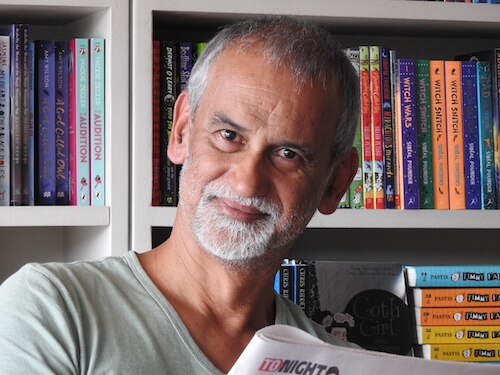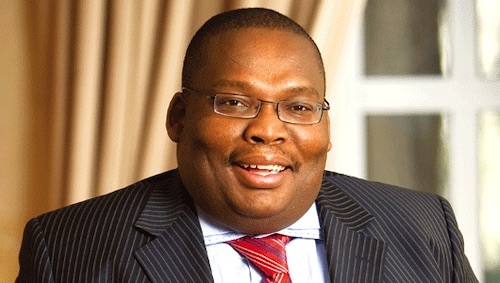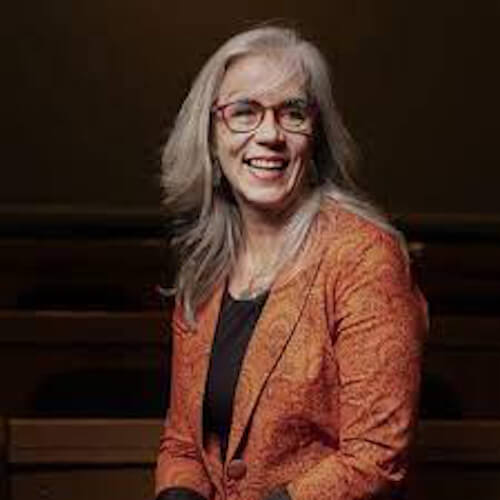 When I was a kid, people in their 50s or 60s seemed absolutely ancient. They were so wrinkly, grey and careworn that it was a miracle they were still alive.
When I was a kid, people in their 50s or 60s seemed absolutely ancient. They were so wrinkly, grey and careworn that it was a miracle they were still alive.
Now I’m on the cusp on turning 60, and I swear that our generation is different. It’s not just our perspective that changes with age - the way we age has actually changed too. Instead of winding down towards retirement, many people are hitting their 60s on turbocharge. They’re producing some of their finest work and finding ways to stay relevant at an age when society expects them to quietly fade away. What’s fascinating is why some people seem content to drift towards old age, while others grab life to make fresh strides in their existing field or reinvent themselves completely.
Margaret Manning, the founder of a website called Sixty and Me, says for most of our lives we’re too busy just living to ponder how things could be different. Women in particular often put their own lives on hold to raise a family. Then things start to change. “As our time starts to free up a bit, the nagging question of what we want to do with our lives resurfaces,” Manning says.
For anyone thinking it’s too late to bother, check the statistics. At 60 you may still have 20 or 30 years ahead - a long time to plod along aimlessly, and plenty of time to master a new career.
Global life expectancy rose from 66.8 years in 2000 to 73.4 years in 2019, and general health has also improved. In South Africa the average life expectancy is 64.1 years, a massive jump from 49.1 in 1962 - the year when those of us now turning 60 were born.
Many of us grew up with a different attitude to previous generations and expectations of a far fuller life. We still feel young and energetic, with valuable experience that can guide the steps of others. Often we have fewer family responsibilities and associated bills; the time to try new things; and a financial cushion after working for decades. Plus the motivation that kicks in when you realise there’s not enough time left to procrastinate.
Johannesburg-based clinical psychologist Gaylin Jee says that early life experiences shape the values and motivations that drive your behaviour, while there may also be a genetic tendency towards risk taking. Your propensity to act might also be explained by The Game Changer Index, which analyses your inclination to make an impact based on attributes including your appetite for tackling new challenges and willingness to change.
Jee is the founder of management consultancy 33 Emeralds, and one of her clients is a businessman in his 60s. He was starting his fourth business when he gave it all up because it didn’t bring enough meaning to his life. “He wanted to do something more noble than just chasing profits,” Jee says. Another client quit his job to focus on woodworking.
“As you go through different development stages you want to be more generative and give back and be more relevant. That doesn’t mean you have to save the children or stop world hunger. It can be deciding what is more fulfilling for you, and going after it,” she says.
 Playwright Mike van Graan says people often grow more conservative with age and stick with what they know – including stale relationships - as a defence against loneliness. “I chose differently. I got divorced in my late fifties and chose to embrace what life could offer. Opportunities emerged that might not have been possible had I been less mobile.”
Playwright Mike van Graan says people often grow more conservative with age and stick with what they know – including stale relationships - as a defence against loneliness. “I chose differently. I got divorced in my late fifties and chose to embrace what life could offer. Opportunities emerged that might not have been possible had I been less mobile.”
The fresh start allowed him to accept artist-in-residence positions in Florida, Pretoria and Stellenbosch, write new plays and a novel, and facilitate conferences overseas to train festival managers.
When Covid closed the arts sector he was instrumental in launching the Sustaining Theatre and Dance (STAND) Foundation and was the lead writer in the team behind a new theatre and dance policy document for the Department of Sport, Arts and Culture.
This hyperactivity has more to do with addressing an unequal and unjust society than any desire to leave a personal legacy, he says. “For me, this is a moral issue. As a human being, a citizen, a parent and a creative, one needs to engage with the causes of social injustice. I am less driven now by wanting to leave a mark than ‘what makes me happy? What does it mean to live a fulfilled life?”
At 62 he doesn’t feel threatened by up-and-coming youngsters. Instead, he helps them to grow by providing work for young actors, directors, writers and choreographers in his plays or through the Stand Foundation. Giving them their initial opportunities to reach an audience is an immensely rewarding part of his legacy. “People are living to much older ages, and an older generation – whether younger people acknowledge it or not – have invaluable experience, networks, expertise and resources that may be put to effective use in changing the world, in changing the lives of individuals and families,” he says.
 For musician Dan Chiorboli (67), a disquieting sense of running out of time was heightened by losing many friends and acquaintances to Covid. “That brought the feeling of mortality a lot closer to home. I don’t know what’s around the corner and how long God wants me to stick around for - but I sure as hell want to cram as much into every day that I possibly have!,” he says. “I don’t think it’s about leaving a legacy. It’s more about being driven to achieve, something that’s been with me my entire life, and the sense of creativity which has probably been enhanced as I get older.”
For musician Dan Chiorboli (67), a disquieting sense of running out of time was heightened by losing many friends and acquaintances to Covid. “That brought the feeling of mortality a lot closer to home. I don’t know what’s around the corner and how long God wants me to stick around for - but I sure as hell want to cram as much into every day that I possibly have!,” he says. “I don’t think it’s about leaving a legacy. It’s more about being driven to achieve, something that’s been with me my entire life, and the sense of creativity which has probably been enhanced as I get older.”
Chiorboli first made a major change many years ago when he quit a corporate job to become a full-time percussionist, songwriter and producer. Instead of treading water and hanging on for the financial security, he used his savings to fuel his passion.
Since then he’s brought together international musicians to create The Liberation Project, resulting in a triple album of protest songs and a tour of Italy. During Covid he formed another multinational group called The Solidarity Express, and he’s bringing Peter Gabriel’s WOMAD arts and music festival to South Africa for the first time this October.
Chiorboli’s attitude sums up an ethos common to those who find fresh impetus in their sixties. “I take an interest in life in general, meet and communicate with new friends, make plans for the future and travel as much as I can. I strive to keep learning and developing intellectually,” he says.
Meanwhile, the first generation of young and ambitious black men to excel in the information technology sector is also hitting retirement age, and using their reputation, skills, experience and wealth to pivot into new careers as investors or mentors to do good and stay relevant.
 Isaac Mophatlane, who founded BCX with his late twin brother, is investing in and advising fintech start-ups. “I still see myself as having a lot to give, and with the legacy you’ve created you want to inspire the next generation,” he says. “There are a couple of young start-ups I’m involved in and it’s not about equity at all, it’s about giving them guidance. That’s the most fulfilling part.”
Isaac Mophatlane, who founded BCX with his late twin brother, is investing in and advising fintech start-ups. “I still see myself as having a lot to give, and with the legacy you’ve created you want to inspire the next generation,” he says. “There are a couple of young start-ups I’m involved in and it’s not about equity at all, it’s about giving them guidance. That’s the most fulfilling part.”
After four decades in IT, Stewart Van Graan has also found new fulfilment by mentoring and using his network to help promote talented black and coloured youngsters. “When I stopped corporate life in 2017 I declared I was going to live a life of giving back, and I’m pretty pleased with where I’m at. But I don’t want to work too hard,” he jokes. “I also want to play golf and go on holiday.”
 Married couple Ingrid Lotze and Gavin Moffatt were inspired to change by a movie based in Boston. They thought it would be fun to live there for a month, along with 15 other cities they fancied sampling. Recently they sold their house, shed their possessions and set off. “We’re resilient and mature enough to go with the flow, and our responsibilities towards our children don’t bind us to a physical location,” says Lotze (55).
Married couple Ingrid Lotze and Gavin Moffatt were inspired to change by a movie based in Boston. They thought it would be fun to live there for a month, along with 15 other cities they fancied sampling. Recently they sold their house, shed their possessions and set off. “We’re resilient and mature enough to go with the flow, and our responsibilities towards our children don’t bind us to a physical location,” says Lotze (55).
What’s interesting is the reaction that their new rootless lifestyle has elicited from their peers. “The dominant response from people of 50 and over is: ‘You’re nuts. I have a comfortable chair/bed/pillow/group of friends, why would I uproot that now?’” says Lotze.
Yet as Chiorboli points out, there’s a scientific reason why we’re still capable of embarking on major shifts and creating magic. “The brain of an older person is much more practical than is commonly believed. At this age, the interaction of the right and left hemispheres becomes harmonious, which expands our creative possibilities,” he says.
Cognitive psychologist Dr Winston Sieck, the founder of Global Cognition, says there is growing evidence that our aging brains are more malleable than previously thought and capable of new feats even in the last decades of life. “In fact, new experiences can trigger major physical changes in the aging brain within just a few days, and certain conditions can accelerate this physical, chemical and functional remodeling,” he says. So the argument that you’re too old to learn new tricks is being debunked.
If you’ve ever questioned whether your own skills - or your life – are going to waste, perhaps you’re also ready for a reinvention.
First published in Business Day